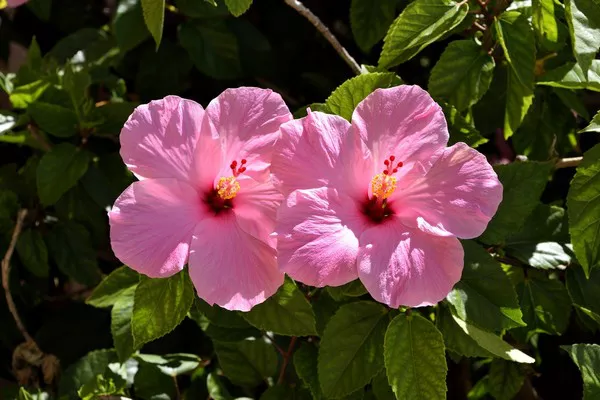Allergic rhinitis, commonly known as hay fever, is a chronic condition affecting millions of people globally. Characterized by symptoms such as sneezing, a runny or blocked nose, itchy eyes, and throat irritation, allergic rhinitis can significantly reduce quality of life. It is triggered by allergens—substances that the body wrongly identifies as threats. These include pollen, dust mites, mold spores, pet dander, and even certain foods. While medication offers relief, many people are seeking natural ways to prevent allergic rhinitis before it even begins. This is due to concerns about medication side effects, long-term dependency, and the desire for a more holistic approach to health. Thankfully, natural prevention methods are not only possible but can be highly effective when practiced consistently.
Preventing allergic rhinitis naturally requires a multi-faceted approach. This means reducing allergen exposure, enhancing the body’s immunity, and making lifestyle changes that support respiratory and overall health. Unlike medications that treat symptoms after they occur, natural prevention methods aim to stop the allergic reaction before it starts. These strategies are rooted in common sense and supported by scientific research. When used together, they can help manage allergic rhinitis without relying heavily on pharmaceuticals. Let’s explore ten natural and practical ways to prevent allergic rhinitis and breathe more freely year-round.
Reducing Indoor Allergens Can Improve Allergy Prevention
The home is often the most significant source of allergen exposure, especially for those who suffer from perennial allergic rhinitis. Dust mites, pet dander, and mold commonly accumulate indoors, particularly in places like carpets, bedding, and upholstery. Taking steps to reduce these indoor allergens is an essential part of natural prevention. Washing sheets and pillowcases in hot water once a week can eliminate dust mites. Using hypoallergenic covers for pillows and mattresses adds another layer of protection. If pets are in the home, keeping them out of bedrooms and vacuuming regularly with a HEPA-filter vacuum can significantly reduce dander in the air.
Maintaining clean air quality is equally important. Air purifiers with HEPA filters remove airborne allergens, while keeping windows closed during high pollen seasons prevents outdoor allergens from entering. Humidity control is also crucial, as high humidity promotes the growth of mold and dust mites. Using a dehumidifier to keep indoor humidity between 30% and 50% helps prevent the buildup of these allergens. Together, these measures create a safer home environment and minimize daily allergen exposure.
Nasal Irrigation Is an Effective Natural Technique
Nasal irrigation is a simple and natural technique that can effectively prevent allergic rhinitis symptoms. By flushing out the nasal passages with a saline solution, this method clears away allergens, irritants, and excess mucus. Nasal irrigation can be done using a neti pot, squeeze bottle, or pre-packaged saline sprays. The saline helps soothe inflamed nasal tissues and reduces the need for antihistamines or decongestants.
Regular nasal irrigation not only provides immediate relief but can also reduce the frequency of allergic flare-ups. It helps the nasal passages maintain their natural function as a barrier against harmful particles. For individuals exposed to pollen or pollutants, rinsing the nose at the end of the day removes accumulated allergens before they can trigger a reaction. Practiced consistently, this gentle routine supports healthier breathing and better control over allergic symptoms.
A Balanced Diet Supports Allergy Resistance
Diet plays a critical role in regulating immune responses. The immune system’s sensitivity to allergens can be influenced by the foods we eat. A diet rich in anti-inflammatory and antioxidant nutrients helps the body manage stress and inflammation more effectively. Fresh fruits and vegetables like oranges, berries, spinach, and broccoli are rich in vitamin C and flavonoids, which have natural antihistamine properties. Omega-3 fatty acids found in walnuts, flaxseeds, and fatty fish like salmon can also reduce inflammatory responses associated with allergies.
It is equally important to avoid foods that may trigger inflammation or worsen mucus production. Excessive consumption of dairy, sugar, and processed foods can contribute to chronic inflammation, making allergic rhinitis symptoms more severe. Some individuals may have undiagnosed food sensitivities that worsen respiratory symptoms. Keeping a food journal can help identify specific dietary triggers. By focusing on whole, nutrient-dense foods, you support a more resilient immune system and reduce the frequency of allergic reactions.
Local Honey May Help Build Pollen Tolerance
Local honey is a popular natural remedy that may help prevent allergic rhinitis, particularly seasonal allergies. The theory is that by consuming small amounts of pollen through local honey, the immune system becomes less sensitive to airborne pollen. This process is somewhat similar to the principle behind allergy shots, which gradually desensitize the body to allergens. Although scientific studies on honey’s effectiveness are mixed, many people report a reduction in allergy symptoms after incorporating local honey into their diets.
To try this method, look for raw, unprocessed honey produced by bees in your area. Start with a small amount daily—around one teaspoon—and allow your body to adapt gradually. This method works best when started weeks or even months before allergy season begins. While it may not replace other prevention strategies, local honey can be a tasty and supportive addition to your natural allergy-prevention toolkit.
Herbal Remedies Can Provide Natural Antihistamines
Herbal remedies have been used for centuries to treat a variety of ailments, including respiratory conditions. Certain herbs contain compounds that support the immune system and reduce allergic inflammation. Butterbur, for example, is known for its ability to reduce nasal swelling and improve breathing. Studies have shown that butterbur extract can be as effective as some over-the-counter antihistamines, without the drowsiness. Stinging nettle is another herb that acts as a natural antihistamine and may help reduce sneezing and nasal congestion.
Quercetin, a natural plant flavonoid found in apples, onions, and green tea, helps stabilize mast cells and prevent the release of histamine. Herbal teas made with chamomile, peppermint, or ginger can also provide soothing effects for inflamed airways. Before starting any herbal remedy, it’s important to consult a healthcare professional, especially if you are taking other medications. When used wisely, herbal treatments can complement your efforts to prevent allergic rhinitis naturally.
Proper Hydration Aids Mucosal Health
Staying well-hydrated plays an often overlooked but vital role in allergy prevention. Adequate fluid intake helps thin mucus in the nasal passages, making it easier to expel allergens and irritants. Water also supports overall immune function and keeps the mucous membranes moist and functional. When the body is dehydrated, nasal passages can become dry and more susceptible to irritation and inflammation.
Drinking plenty of water throughout the day, especially during allergy season, keeps your body functioning efficiently. Herbal teas and broths are also excellent choices, as they offer hydration along with anti-inflammatory properties. Avoid caffeinated and alcoholic beverages in excess, as they can contribute to dehydration. Maintaining optimal hydration is a simple yet powerful habit for anyone looking to naturally reduce allergy symptoms.
Regular Exercise Strengthens Respiratory Health
Regular physical activity boosts circulation, enhances lung capacity, and improves immune system function. These benefits contribute to better resistance against allergens. Exercise increases the efficiency of the respiratory system, helping the body clear allergens more quickly. It also reduces stress, which is known to aggravate allergic reactions. A healthy exercise routine, including activities like walking, cycling, swimming, or yoga, supports overall wellness and strengthens the body’s defense mechanisms.
However, outdoor exercise should be done with caution during high pollen seasons. Choosing times when pollen levels are low, such as early mornings or after rainfall, can help minimize exposure. For those with severe sensitivities, indoor workouts with filtered air are a safer alternative. Consistency is key, and even moderate activity several times a week can make a noticeable difference in allergic rhinitis management.
Stress Management Reduces Immune Overreactions
Stress has a profound impact on the immune system and can worsen allergic conditions. When the body is under stress, it releases hormones like cortisol and adrenaline, which can trigger inflammatory responses. Chronic stress weakens the immune system and makes the body more reactive to allergens. Individuals with high stress levels often report more severe allergic rhinitis symptoms and more frequent flare-ups.
Incorporating stress-reduction techniques into your daily routine can help mitigate this effect. Practices such as deep breathing, meditation, mindfulness, and regular physical activity are proven ways to reduce stress. Spending time in nature, engaging in hobbies, and maintaining social connections also contribute to emotional well-being. A calm and balanced mind supports a stronger immune response and reduces the chances of allergy-related complications.
Sleep Quality Enhances Immune Function
Quality sleep is essential for a healthy immune system and for reducing inflammation in the body. Poor sleep can lead to increased susceptibility to infections and more severe allergy symptoms. Nasal congestion often worsens at night, making it difficult to sleep well. This creates a cycle where poor sleep leads to higher stress and inflammation, which in turn aggravate allergic rhinitis.
Improving sleep hygiene can significantly aid in prevention. Keeping the bedroom free of allergens, using air purifiers, washing bed linens frequently, and choosing hypoallergenic pillows and mattresses can improve sleep quality. Going to bed and waking up at the same time every day, avoiding screens before bedtime, and keeping the room cool and dark also help promote restful sleep. With better sleep, the body is more resilient and less prone to allergic flare-ups.
Natural Prevention Methods Can Reduce Dependence on Medication
While natural prevention methods are highly effective, they may not completely replace medication for everyone. Some individuals with severe allergic rhinitis may still require antihistamines or corticosteroids during peak allergy seasons. However, the goal of natural prevention is to reduce the frequency and intensity of symptoms, potentially lowering the need for medication. Many people find that combining natural methods with minimal medication offers the best results with fewer side effects.
The success of natural prevention lies in consistency. These strategies are not quick fixes but rather long-term lifestyle adjustments. By incorporating multiple approaches—from dietary changes and hydration to stress management and nasal care—you create a strong defense system that keeps allergic rhinitis at bay. With time, many individuals find that their symptoms become less frequent and more manageable without heavy reliance on pharmaceuticals.
Related Topics

































